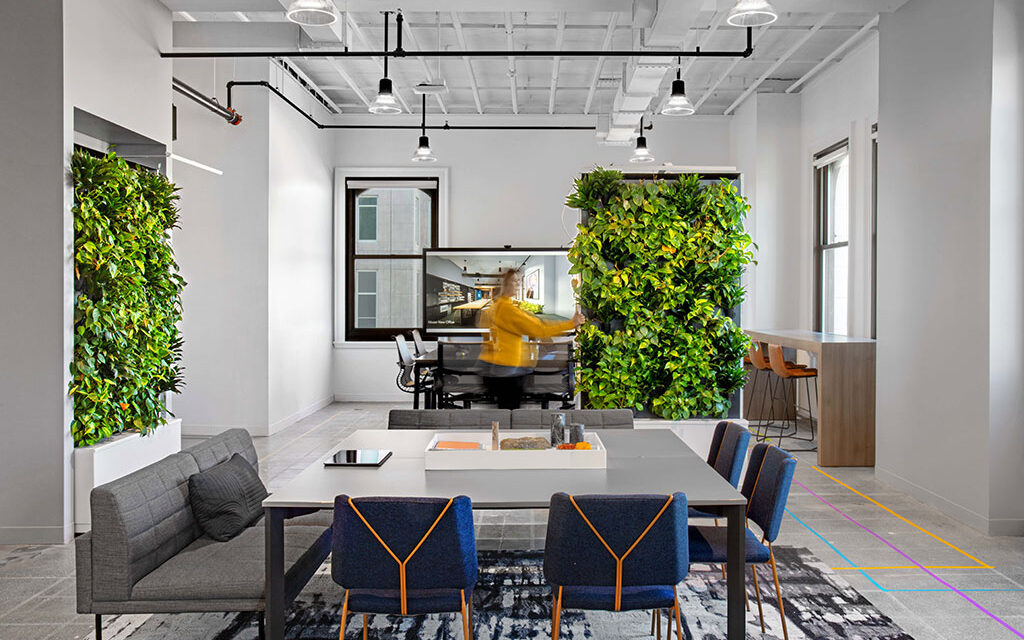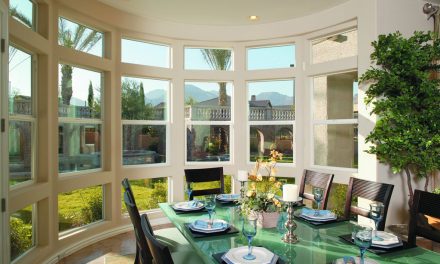The American Society of Interior Designers (ASID) has announced the latest case study in its Impact of Design Series: M Moser Associates Living Lab, designed by M Moser. A winner of the 2020 ASID Outcome of Design Awards in the “experimental impact” category, the New York project explores fresh ways of working with an entirely new workspace that speaks to its dedicated focus on post-occupancy research. The Impact of Design series puts a spotlight on projects that utilize evidence-based design, and M Moser’s “Living Lab” puts this into action with a flexible, agile workspace that continually accommodates for client and employee needs.
Founded in 1981, M Moser has an impressive track record spanning nearly 40 years. They have designed and delivered solutions for international clients of varied sectors. Over the years, M Moser has grown to 20 offices globally, and the staff has grown to over 1,000 dedicated personnel. Creating workplaces for global business, M Moser focuses on the delivery of unparalleled work environments, optimized to leverage clients’ resources and support the business activities of their staff.
“The Impact of Design Series highlights the value of interior design and the profession’s innate ability to improve occupant health, wellbeing and overall quality of experience,” states ASID Interim CEO Gary Wheeler, FASID . “Through post-occupancy studies, the M Moser team continues to experiment on innovative design elements that all evidentially impact occupants and further prove the positive, transformative power of design.”
M Moser employed various design solutions to overcome challenges and achieve their goals, including:
Dynamic Work Environment: The M Moser team is empowered to choose how and where they need to work each day. With a clean desk policy, the office is equipped with individual lockers for each person. The office plan provides a variety of space types for various work needs (focus spaces, conference rooms, lounge areas, quiet/wellness rooms, phone pods, VC rooms, standing desks, sitting desks, collaboration zones, etc.). M Moser moved into the office with around 30+ people and have nearly doubled their size at 50.
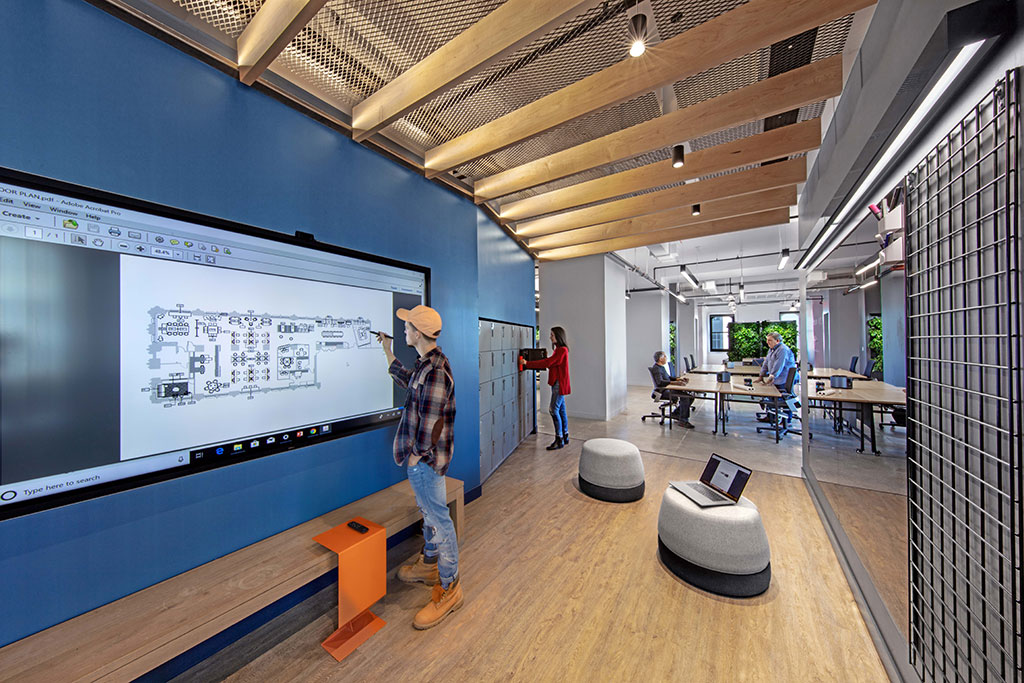
Photo credit: Eric Laignel
Mobility & Flexibility: With mobile battery power packs, the team is more agile without being tethered to desks or outlets. By focusing efforts on the digital strategy, the team developed an office app, which enables visitors and staff to book conference rooms, provide feedback to other team members, engage with the community board and locate places of note in the neighborhood. The design team engineered flexible desk furniture and incorporated additional moveable furniture and users are encouraged to adapt areas based on their unique requirements, without restrictions. The rolling desks can be rearranged within minutes. Large mobile screens allow staff to create desktop-like environments anywhere in the office. Green walls on wheels create greater flexibility with biophilic elements.
Healthy Encouragement, Air Quality & Sustainability: Circadian lighting, low-impact gym equipment such as TRX bands and a trampoline, air quality monitors, biophilia, plants, water filtering, healthy food and healthy materials allow for the team to leave work healthier than when they came in. The new office achieved RESET Certification and has been designed to meet WELL Platinum Certification. M Moser has also been recognized with the “Ocean Champion Badge,” the highest level of The Oceanic Standard (TOS), for adopting a holistic approach to sustainable operating practices, with a strong focus on eliminating single-use plastics.
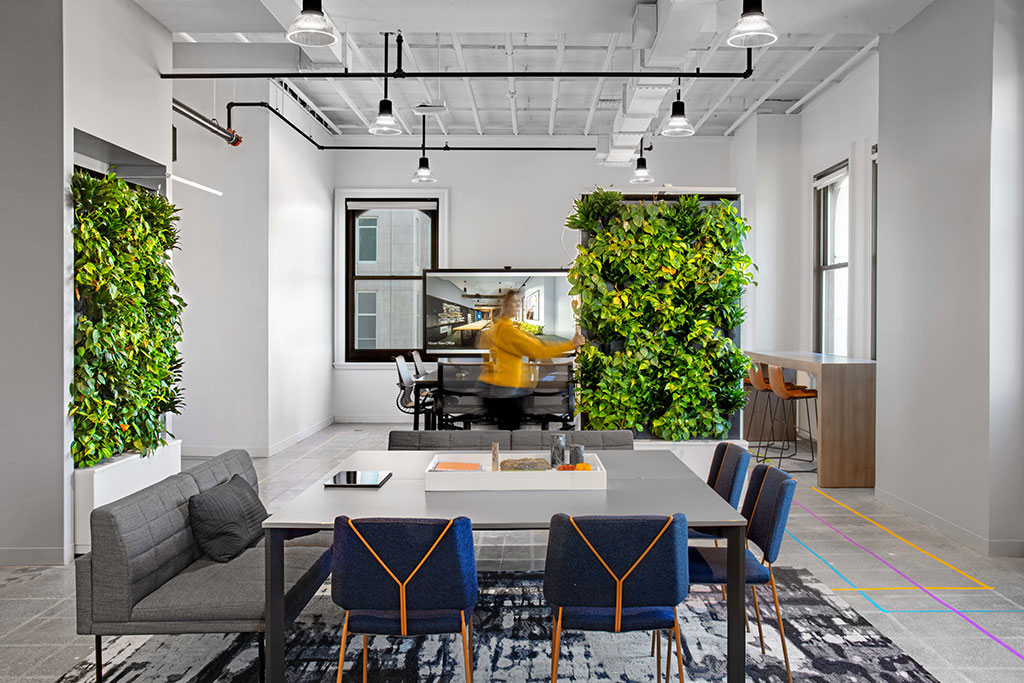
Photo credit: Eric Laignel
Future Focused Technology: The office is equipped with a VR Lab to work design solutions, a 3D printer to prototype architectural elements and an Innovation Lab to strategize with clients that creates a future-focused approach to creativity. Technological upgrades include high speed, trading-level Wi-Fi, a fully cloud-based network, a U Rack server and a biometric fingerprint reader entrance.
Living Lab Approach & Experimentation: The whole workspace embodies the spirit of freedom and experimentation, empowering people to adapt and innovate. Users are encouraged to adapt areas based on their unique requirements, without restrictions. The team is able to test out and trial design solutions within their own workspace for clients.
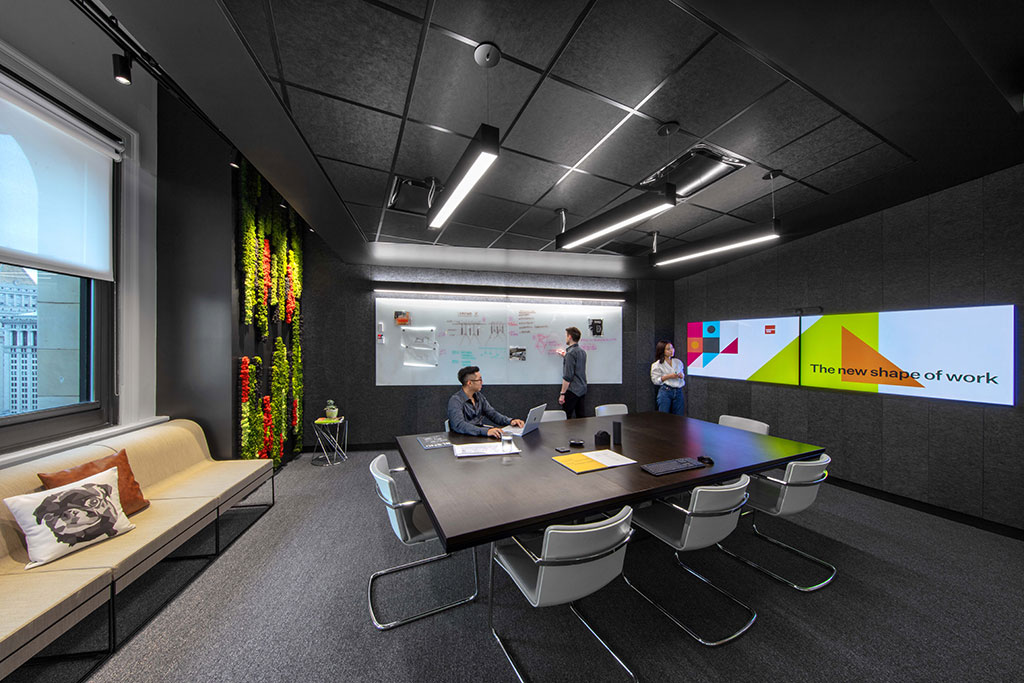
Photo credit: Eric Laignel
The result is an adaptable workplace that reflects the innovative capabilities of M Moser. By studying individual needs, the environment now offers a variety of new digital strategies, thoughtful space planning, flexible furniture and technology – all which speak to M Moser’s goals of enhanced accessibility, collaboration, and identity.
Learn more and download the case brief here. For further information, including M Moser’s expanded design plans to address COVID-19, please clickhere to view a recorded Outcome of Design webinar presented at NeoConnect.

